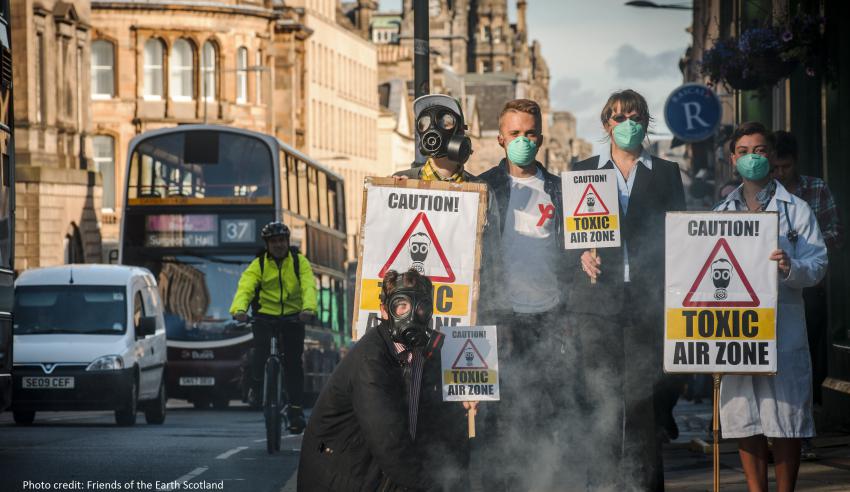
Banning diesel cars is the only option left for cities to improve air quality
Yesterday’s (3rd February) decision by the European Parliament on Real Driving Emissions leaves cities and it’s people suffering from dirty air in the cold. The de-facto increase of the NOx pollution levels by a conformity factor of 2.1 until 2021 means that cities have to find other solutions to deal with the massive problem of bad air quality. ECF strongly believes that the only way forward can be a profound paradigm shift in transport policies, prioritising non-polluting active modes and public transport in cities. Where necessary, dirty diesel cars have to be banned from the city centres.
Benedicte Swennen, Urban Mobility Policy Officer at ECF, says: “ECF advises cities not to put their hopes on weakened Euro standards, but to shift away from motorized vehicles towards active modes and public transport in order to make the air in EU cities healthy again. A solution for air pollution is imperative and cycling should be part of it. Cycling measures do not only benefit cyclists, but the whole urban population.”
The Dieselgate-scandal put Europe under pressure to investigate diesel car emissions more closely and reform the test system. Unfortunately, with a slight majority of 323 votes to 317, the European Members of Parliament voted for a compromise proposal by the EU Member States that weakens the legal emission limits on diesel cars.
Diesel cars are allowed to emit more NOx than legally set in the Euro 6 standard norm:
- 2007: EU agreement on a maximum 80mg/km NOx emissions from cars (Euro 6 standard)
- 2016: set back that allows diesel cars to emit twice as much (168mg/km NOx until 2021)
- After 2021: cars are still allowed to emit 120mg/km NOx
This decision goes against a growing favourable public opinion in favour of measures for cleaner air. A German survey from 2014 shows the population is ready for a paradigm shift: 82 % of the population wants to see fewer cars and more walking, cycling and public transport in cities (94% for the 14-17 year old).
European cities are indeed moving forward to offer their citizens cleaner air and were counting on stricter and effective Euro standards that gradually phase out car pollution. Now they have only one option left: ban diesel cars altogether from their centres and prioritise non-polluting active modes of transport (like cycling) and public transport. ECF’s study on cycling & air quality confirms that cities better invest in cycling measures and car-free-zones to improve air quality. These measures are far more efficient than waiting for many more years for cars to become cleaner. The scenarios proposed in the study measure the impact of increasing cycling and car-free zones. They are realistic and achievable by many cities in a short time.
ECF will continue to urge for more investments in cycling measures, from the European level down to the local level.
For more information please visit: Air quality page.
Regions:
Topics:
Contact the author
Recent news!
Upcoming events
Contact Us
Avenue des Arts, 7-8
Postal address: Rue de la Charité, 22
1210 Brussels, Belgium









